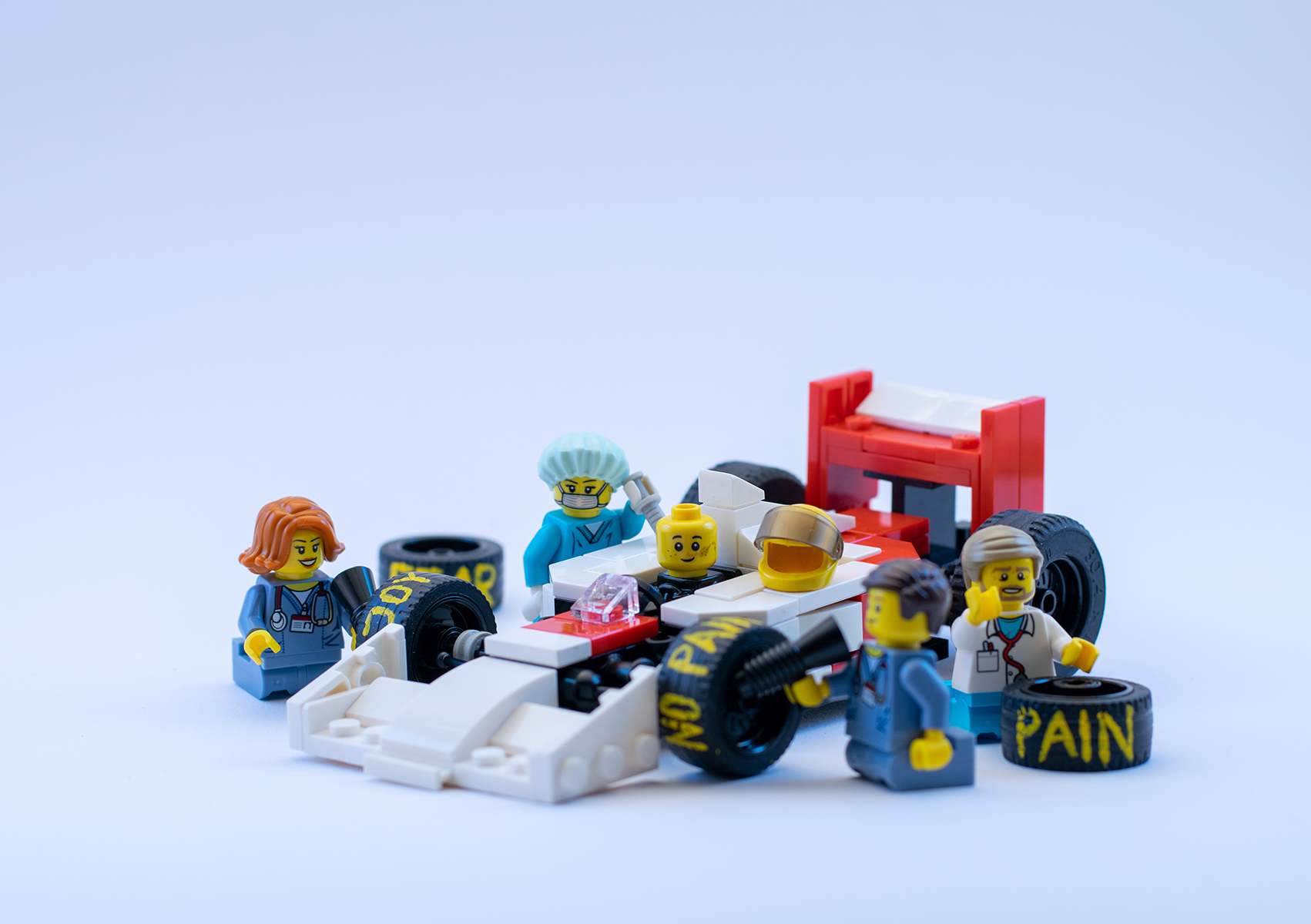New guidelines on childhood cancer to reduce side effects and pain
A greater focus on the well-being of children undergoing cancer treatments could save lives. This is the contention of UMCG trainee paediatrician Erik Loeffen in his thesis, entitled ‘Perfect Pitstops’. ‘Just as regular pitstops are needed in Formula 1 to repair and adjust the cars, regular “pitstops” are needed when treating children with cancer to assess and treat adverse effects. Cancer treatment is a hard, lengthy process. Improving children’s quality of life during and after treatment is an important step towards better care for children with cancer.’ Loeffen will be awarded his PhD on 3 April at the University of Groningen.
Treatments for childhood cancer have improved substantially over the past few decades. Whereas 60 years ago almost all children with leukaemia died, nowadays nine out of 10 survive the disease. ‘The aim of treatment has always been to cure the disease,’ explains Loeffen, ‘but it can have severe adverse effects. In some cases, these are so bad that the child dies of them, for example due to infection or bleeding.’ Even when children do not die of the side effects, they can cause suffering – for example pain, hair loss and anxiety – in the short term. In the long run, the treatment can cause heart problems, infertility, growth retardation, reduced intelligence and mental issues.
Guidelines on injection
‘We are still not focusing enough on children’s well-being during treatment and on preventing side effects’, Loeffen notes. His thesis therefore examines this supportive care, for example to prevent pain during injections. ‘Children with leukaemia undergo more than 100 needle procedures over a two-year period. That can cause a lot of anxiety, and might lead to an anxiety disorder and care avoidance.’ Based on existing studies, Loeffen has developed international guidelines in collaboration with experts and patients on reducing pain and stress during needle procedures. ‘The guidelines recommend among other things always using topical anaesthetics, always carrying out bone marrow aspiration under full anaesthesia, and always asking children how they would like to be distracted.’
Protecting the heart
Another guideline deals with the administration of anthracyclines, a common treatment for childhood cancer. ‘We know that these chemotherapeutical drugs directly affect the heart. One in 10 patients suffer from heart failure years after their treatment. Administering the drug gradually instead of in a single large dose can protect the heart. The current recommendation is therefore to administer the drug slowly via an intravenous drip, over a period of at least an hour.’
Guidelines in practice
Some of the guidelines that Loeffen has developed or improved are already being used in practice. His research continues: in addition to training as a paediatrics consultant, Loeffen is still doing research one day a week, and two PhD students are being appointed to study the effects of these guidelines. ‘Now that we can cure so many children with cancer, it is very important for us to consider how to treat them so as to produce the best outcomes – to achieve better results with better “pitstops”.’
Curriculum vitae
Erik Loeffen (1987, Wageningen) studied medicine at the University of Groningen. He did his research at the UMCG’s Paediatric Oncology Department, where he also treated children with cancer at the outpatient clinic once a week. The title of his thesis is ‘Perfect Pitstops – Towards evidence-based supportive care in children with cancer’. His research is funded by the Alpe d’HuZes foundation. He is currently a trainee paediatrician at Medisch Centrum Leeuwarden.

More news
-
17 November 2025
Artificial intelligence in healthcare
-
04 November 2025
AI Factory in Groningen advances digital sovereignty
-
03 November 2025
Menopause in perspective: How the media influences our perception
